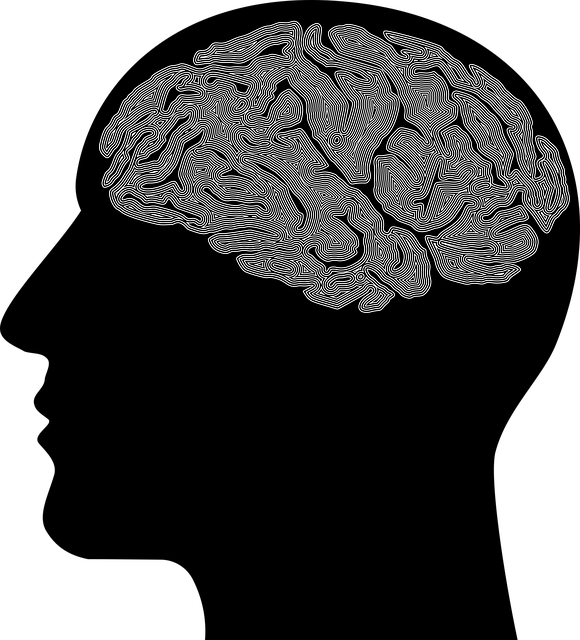Crisis intervention strategies differ greatly based on age groups, with unique approaches for both young children (using play-based therapies like art or storytelling) and geriatrics (incorporating mindfulness, stress management workshops, and cultural sensitivity). For geriatrics, personalized interventions addressing loneliness, cognitive decline, and physical health are crucial. Safe spaces, created through tailored therapy techniques, empower individuals to express emotions freely, enhancing resilience. Effective crisis management plans cater to diverse populations, integrating community resources, emergency services, and regular updates based on best practices and research. Cultural sensitivity training for providers significantly improves outcomes across all demographics, including therapy for young children and geriatrics.
In today’s fast-paced world, effective crisis intervention strategies are vital for supporting individuals across diverse age groups. This article delves into comprehensive guidance, addressing unique challenges faced by young children and geriatrics during crises. We explore tailored therapy approaches for kids, focusing on evidence-based methods to foster resilience. For seniors, we discuss creating safe spaces and implementing support systems that cater to their specific needs. Additionally, this guide provides insights into building robust crisis management plans, incorporating best practices for both young children and geriatrics, with a focus on enhancing overall well-being.
- Understanding Crisis Intervention for Different Age Groups
- Therapy Approaches for Young Children in Crisis
- Strategies for Geriatric Population: Tailoring Support
- Creating Safe Spaces and Promoting Resilience
- Building a Comprehensive Crisis Management Plan
Understanding Crisis Intervention for Different Age Groups

Crisis intervention strategies vary significantly when tailored to different age groups. For young children, therapy often involves play-based approaches and creative techniques that help them process emotions and communicate their experiences. This age group may benefit from art therapy, storytelling, or simply playing in a safe environment. The focus is on creating a non-threatening space where they can express themselves freely.
In contrast, geriatrics require a more nuanced approach, considering the physical and cognitive changes that come with aging. Crisis interventions for seniors might include mindfulness practices, stress management workshops, or social support groups. Cultural sensitivity in mental healthcare practice is crucial here; understanding the unique values and beliefs of each individual helps in delivering care that resonates deeply and effectively. Mental health awareness programs can play a significant role in helping the elderly cope with crises by providing them with tools for self-care and resilience.
Therapy Approaches for Young Children in Crisis

In the context of crisis intervention strategies, especially for young children, therapeutic approaches play a pivotal role in fostering their mental wellness and promoting resilience. Given that young minds are still developing, unique therapy techniques tailored to their age group are essential. One effective method is play therapy, which allows children to express themselves through play, helping them work through traumatic experiences or intense emotions. This approach leverages the child’s natural tendency to learn and heal through imaginative play, making it a powerful tool for building coping skills development.
Additionally, incorporating self-awareness exercises into therapy can significantly benefit young individuals. These exercises are designed to help children understand and identify their feelings, thoughts, and behaviors. By enhancing self-awareness, they gain valuable insights into managing crises and improving emotional regulation. Such therapeutic interventions not only address the immediate crisis but also lay the foundation for long-term mental health by nurturing a deeper understanding of oneself in young geriatrics.
Strategies for Geriatric Population: Tailoring Support

When developing crisis intervention strategies for geriatric populations, it’s crucial to tailor support to address unique challenges and needs of this demographic. Older adults may face specific issues such as loneliness, cognitive decline, chronic illnesses, and limited mobility, which can exacerbate stress and anxiety during crises. Therefore, a personalized approach is essential. Therapists working with geriatrics should incorporate strategies that promote social engagement, enhance cognitive function, and manage physical health to mitigate crisis situations effectively.
This could involve integrating activities that foster community participation, such as group discussions or volunteer programs, to combat feelings of isolation. Additionally, trauma-informed care principles can be adapted for older adults who may have experienced historical traumas or recent life changes. Tailoring therapy sessions to incorporate stress management workshops and mindfulness practices can empower geriatric individuals with coping mechanisms. Furthermore, organizations offering support services should consider burnout prevention strategies for caregivers and family members involved in the care of elderly loved ones, as they are also at risk of experiencing crisis situations.
Creating Safe Spaces and Promoting Resilience

Creating safe spaces is a cornerstone of crisis intervention, especially for vulnerable populations like young children and geriatrics. These spaces offer a non-judgmental environment where individuals can express their feelings and fears freely. Therapists play a crucial role in establishing such settings by employing techniques that foster trust and security. By integrating therapy for young children and geriatrics, professionals can tailor interventions to meet unique needs, enhancing resilience through coping skills development.
Promoting mental wellness involves empowering individuals with tools to navigate crises independently. Encouraging journaling exercises as a Mental Wellness Journaling Exercise Guidance can help people process emotions, reflect on experiences, and track progress. This practice contributes to Mental Illness Stigma Reduction Efforts by normalizing self-expression and encouraging proactive mental health management. Through these strategies, safe spaces become catalysts for building resilience, enabling individuals to cope effectively during challenging times.
Building a Comprehensive Crisis Management Plan

In crafting a comprehensive crisis management plan, it’s crucial to tailor strategies that cater to diverse populations, including both young children and geriatrics. For therapy aimed at young children, approaches should be age-appropriate, incorporating play therapy and simple communication techniques. Techniques focused on positive thinking can help alleviate immediate distress while fostering resilience. On the other hand, crisis intervention for geriatrics requires a nuanced understanding of age-related vulnerabilities and chronic conditions. Healthcare providers must possess cultural competency training to address the unique needs of diverse populations effectively. Incorporating cultural sensitivity in mental healthcare practice ensures that interventions are respectful and relevant to each individual’s background.
A robust plan should also account for systemic factors, such as community resources and emergency services, integrating them seamlessly with mental health support. Regularly reviewing and updating the crisis management strategy is essential to keep pace with evolving research and best practices in both general healthcare and specialized fields like geriatrics and therapy for young children. Moreover, training sessions aimed at enhancing cultural competency among providers can significantly improve outcomes by promoting a more inclusive and effective crisis intervention approach.
Crisis intervention strategies are essential for supporting individuals across various age groups, from young children to the geriatric population. By understanding the unique needs of each demographic and utilizing tailored therapy approaches, such as those specific to young children and geriatrics, we can foster resilience and promote safe spaces. Creating comprehensive crisis management plans that incorporate evidence-based practices ensures a proactive and effective response, ultimately enhancing the well-being of those in crisis.









